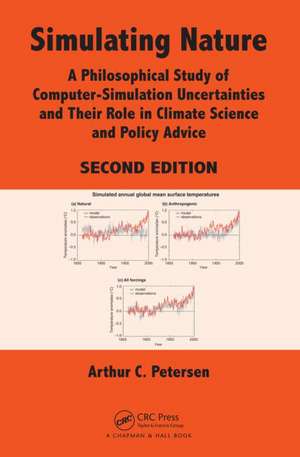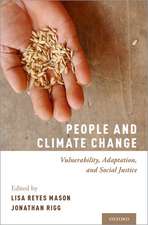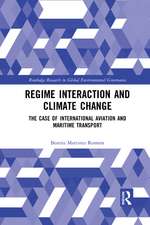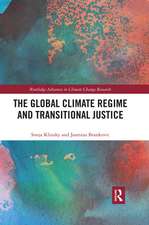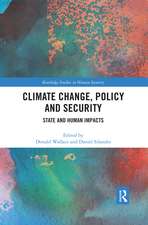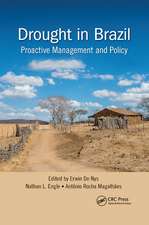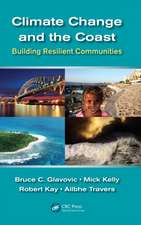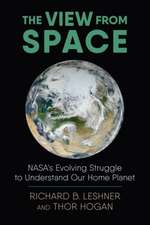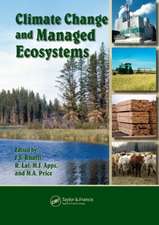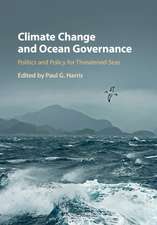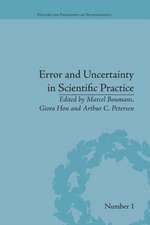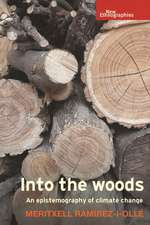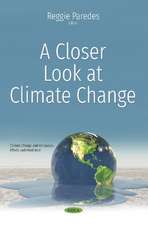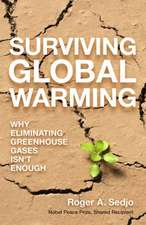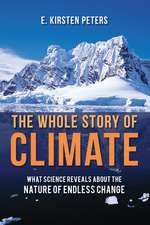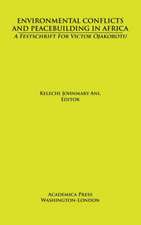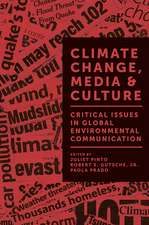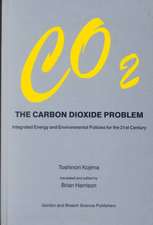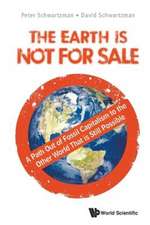Simulating Nature: A Philosophical Study of Computer-Simulation Uncertainties and Their Role in Climate Science and Policy Advice, Second Edition
Autor Arthur C. Petersenen Limba Engleză Paperback – 24 apr 2012
Referring to empirical results from science studies and political science, Simulating Nature: A Philosophical Study of Computer-Simulation Uncertainties and Their Role in Climate Science and Policy Advice, Second Edition addresses questions about the types of uncertainty associated with scientific simulation and about how these uncertainties can be communicated.
The author, who participated in the United Nations’ Intergovernmental Panel on Climate Change (IPCC) plenaries in 2001 and 2007, discusses the assessment reports and workings of the IPCC. This second edition reflects the latest developments in climate change policy, including a thorough update and rewriting of sections that refer to the IPCC.
| Toate formatele și edițiile | Preț | Express |
|---|---|---|
| Paperback (1) | 484.40 lei 6-8 săpt. | |
| CRC Press – 24 apr 2012 | 484.40 lei 6-8 săpt. | |
| Hardback (1) | 1014.74 lei 6-8 săpt. | |
| CRC Press – 11 sep 2017 | 1014.74 lei 6-8 săpt. |
Preț: 484.40 lei
Preț vechi: 569.88 lei
-15% Nou
Puncte Express: 727
Preț estimativ în valută:
92.70€ • 100.66$ • 77.87£
92.70€ • 100.66$ • 77.87£
Carte tipărită la comandă
Livrare economică 22 aprilie-06 mai
Preluare comenzi: 021 569.72.76
Specificații
ISBN-13: 9781466500624
ISBN-10: 146650062X
Pagini: 224
Ilustrații: 10 black & white illustrations, 5 black & white tables
Dimensiuni: 156 x 234 x 15 mm
Greutate: 0.32 kg
Ediția:Revizuită
Editura: CRC Press
Colecția Chapman and Hall/CRC
ISBN-10: 146650062X
Pagini: 224
Ilustrații: 10 black & white illustrations, 5 black & white tables
Dimensiuni: 156 x 234 x 15 mm
Greutate: 0.32 kg
Ediția:Revizuită
Editura: CRC Press
Colecția Chapman and Hall/CRC
Public țintă
Researchers and postgraduate students in philosophy, climate science, statistics, and the social sciences; policymakers in government; general audience interested in climate change.Cuprins
Introduction. Simulation Practice, Uncertainty and Policy Advice: The Practice of Scientific Simulation. A Typology of Uncertainty in Scientific Simulation. Assessment of Simulation Uncertainty for Policy Advice. The Case of Simulating Climate Change: The Practice of Climate Simulation. Uncertainties in Climate Simulation. Assessments of Climate-Simulation Uncertainty for Policy Advice. Conclusions.
Recenzii
"This book can be considered a conceptual book for high-level graduate students as well as scholars from climatology-related fields who wish to understand the philosophy underlying computer-based simulation of climate."
—Journal of the Royal Statistical Society, Series A, 2015
"Simulating Nature is deeply rooted in applied statistics with a welcome openness to a few concepts such as risk, values, and uncertainties. This not-so-frequent-nowadays philosophical dimension in statistics is perhaps the strength of this book and that is why it would be important for graduate students who are already familiar with simulation and applied statistics. On the other hand, philosophers, experts in ethics, policymakers, and sociologists of science would certainly be able to follow most of the demonstrations on climate change, but they would probably focus as well on how these concepts and ideas are discussed and legitimised in this book."
—Yves Laberge, Journal of Applied Statistics, 40, 2013
"Amongst the heated politics of climate science, Petersen’s book does a rare thing. As a philosopher he takes a step back and asks, ‘What sort of knowledge is generated by climate models: is it reliable, is it authoritative, how is it used, is it useful?’ This new edition, fully updated six years after the first, should be read by all those producing or using, criticising or praising, believing or disbelieving, knowledge claims based on climate models. At the least, you will better be able to defend your position; and you may even find yourself changing it."
—Mike Hulme, professor of climate change, University of East Anglia, UK
"In this thought-provoking philosophical analysis, Arthur Petersen explores the nature of climate simulation and attendant uncertainties. Building on this evaluation, Petersen considers the complex processes within the scientific community, and between scientists and society, that ultimately determine whether an assessment becomes a robust, shared basis for decision, or contested and a source of dispute. He points out that it is not enough to analyze uncertainty as a purely technical problem. Deeper uncertainties such as those that stem from the way the problem is framed, models are structured, or expert judgments are made, must also be considered. His analysis has implications not only for the Intergovernmental Panel on Climate Change and other assessment bodies, but for all who debate the reliability and utility of model simulations as a basis for managing environmental risks in the anthropocene era."
—Richard Moss, senior staff scientist, PNNL Joint Global Change Research Institute, University of Maryland, College Park, USA
—Journal of the Royal Statistical Society, Series A, 2015
"Simulating Nature is deeply rooted in applied statistics with a welcome openness to a few concepts such as risk, values, and uncertainties. This not-so-frequent-nowadays philosophical dimension in statistics is perhaps the strength of this book and that is why it would be important for graduate students who are already familiar with simulation and applied statistics. On the other hand, philosophers, experts in ethics, policymakers, and sociologists of science would certainly be able to follow most of the demonstrations on climate change, but they would probably focus as well on how these concepts and ideas are discussed and legitimised in this book."
—Yves Laberge, Journal of Applied Statistics, 40, 2013
"Amongst the heated politics of climate science, Petersen’s book does a rare thing. As a philosopher he takes a step back and asks, ‘What sort of knowledge is generated by climate models: is it reliable, is it authoritative, how is it used, is it useful?’ This new edition, fully updated six years after the first, should be read by all those producing or using, criticising or praising, believing or disbelieving, knowledge claims based on climate models. At the least, you will better be able to defend your position; and you may even find yourself changing it."
—Mike Hulme, professor of climate change, University of East Anglia, UK
"In this thought-provoking philosophical analysis, Arthur Petersen explores the nature of climate simulation and attendant uncertainties. Building on this evaluation, Petersen considers the complex processes within the scientific community, and between scientists and society, that ultimately determine whether an assessment becomes a robust, shared basis for decision, or contested and a source of dispute. He points out that it is not enough to analyze uncertainty as a purely technical problem. Deeper uncertainties such as those that stem from the way the problem is framed, models are structured, or expert judgments are made, must also be considered. His analysis has implications not only for the Intergovernmental Panel on Climate Change and other assessment bodies, but for all who debate the reliability and utility of model simulations as a basis for managing environmental risks in the anthropocene era."
—Richard Moss, senior staff scientist, PNNL Joint Global Change Research Institute, University of Maryland, College Park, USA
Descriere
Addressing how to manage the science-policy interface, this book presents a philosophical study of the issues surrounding uncertainty in scientific simulation, particularly concerning the role it plays in public policy regarding climate change. The author, who participated in the United Nations’ Intergovernmental Panel on Climate Change (IPCC) plenaries in 2001 and 2007, discusses the assessment reports and workings of the IPCC. This second edition reflects the latest developments in climate change policy.
